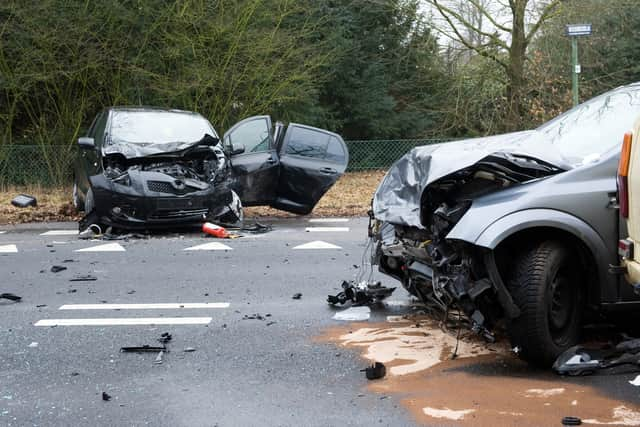Death by dangerous driving sentence: law change means dangerous drivers who kill could be jailed for life
and live on Freeview channel 276
From Tuesday 28 June, judges will have the power to hand down life sentences to dangerous drivers who kill and careless drivers who kill while under the influence of drink or drugs.
Advertisement
Hide AdAdvertisement
Hide AdPreviously, they could impose a maximum penalty of 14 years’ imprisonment for the offences.


Justice Secretary Dominic Raab said: “Too many lives have been lost to reckless behaviour behind the wheel, devastating families.
“We have changed the law so that those responsible will now face the possibility of life behind bars.”
Advertisement
Hide AdAdvertisement
Hide AdThe reforms will also create a new offence of causing serious injury by careless driving, meaning those who inflict long-term or permanent injuries also face tougher sentences.
The move has been welcomed by motoring groups who said it sent a powerful message.
RAC head of roads policy Nicholas Lyes said: “People have been crystal clear that they support tougher sentences for those who cause death by dangerous driving.
“While it’s frustrating it’s taken so long for the law change to take effect – five years in total – we hope a powerful message is now sent to anyone who drives recklessly that there’s a very real chance they will end up behind bars for life.”
Advertisement
Hide AdAdvertisement
Hide AdThe changes are part of wide-reaching updates to the PCSC Act, which cover everything from football banning orders to a new legal test that will compare a police driver to a peer with a similar level of training to stop “innaprorpriate driving”.
The changes also allow judges to grant people with hearing loss the additional support of sign language interpreters during jury deliberations.
Previously, only the 12 sworn jurors were permitted to enter deliberation rooms meaning those who have hearing loss were unable participate.
Mr Raab added: “The right to be judged by your peers dates back to Magna Carta, and is a cornerstone of our justice system.
“We’re changing the law so that many more deaf people have the opportunity to carry out this important civic duty.”
Comment Guidelines
National World encourages reader discussion on our stories. User feedback, insights and back-and-forth exchanges add a rich layer of context to reporting. Please review our Community Guidelines before commenting.
